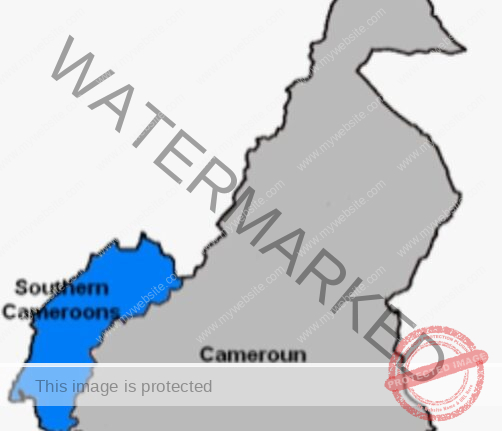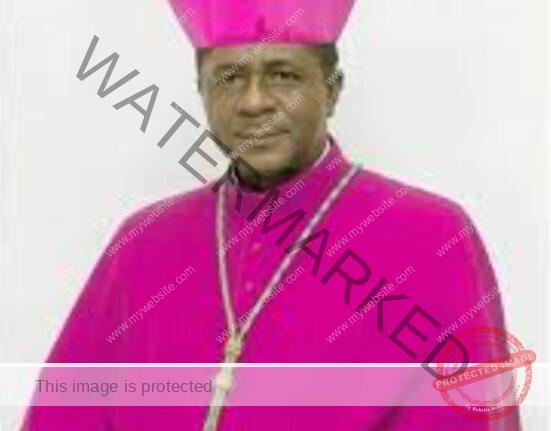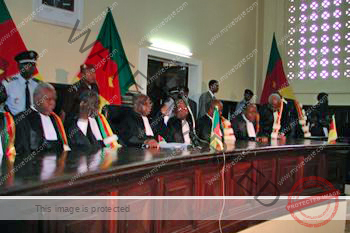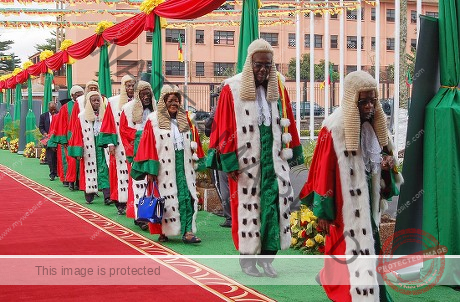Ambassador Thierry Marchand the man known, to be pulling the strings
By Ali Dan Ismael and Young Jean-Pierre | The Independentist
As Cameroon prepares for its 2025 presidential elections, the political landscape has been jolted by the exclusion of opposition leader Professor Maurice Kamto, a decision that has raised eyebrows both domestically and internationally. While officially attributed to procedural irregularities, a growing body of analysts and political actors argue that France’s influence over the process has been both decisive and opaque.
This article explores those claims—grounded in patterns of diplomatic behavior, post-colonial arrangements, and ongoing conflict in the English-speaking territories of Ambazonia—to assess the extent to which Cameroon’s sovereignty has been compromised and France’s accountability obscured.
The Kamto Affair and the Embassy Announcement
In a highly unusual turn of events, Paul Biya’s candidacy for an eighth term was first hinted at—then effectively confirmed—not by Cameroon’s electoral commission (ELECAM) or Constitutional Council, but through a press event at the French Embassy in Yaoundé, reportedly attended or acknowledged by Ambassador Thierry Marchand. The announcement was followed by a public endorsement from the United States Embassy.
At the same time, over 80 political parties had submitted candidacies for the 2025 elections. Only 13 were approved, with Kamto’s Cameroon Renaissance Movement (MRC)—one of the few parties to seriously challenge Biya in 2018—being left off the list entirely. This selective approval has been characterized by critics as a process of vetting for loyalty, not legality.
The government of Cameroon has insisted that all disqualifications were in accordance with national electoral law. However, legal observers and opposition figures have pointed to a pattern of systemic exclusion, including media censorship, arrest of party officials, and intimidation tactics—conditions that violate Article 25 of the ICCPR, which guarantees the right to freely participate in government.
The Dossier de Coopération and De Facto French Oversight
Claims of France’s direct involvement in the electoral outcome are not baseless conspiracy. Rather, they stem from a long-standing but little-publicized agreement known as the Dossier de Coopération—a framework embedded in the post-independence relationship between France and many of its former colonies. Under its unofficial provisions, when a sitting African president is incapacitated, the French ambassador reportedly assumes de facto administrative coordination, pending the election or installment of a successor.
In Cameroon—where President Biya is now rarely seen in public, sparking ongoing rumors about his health—Ambassador Marchand’s increasingly public political gestures have fueled suspicions that this clause has quietly taken effect. The public announcement of Biya’s candidacy from French diplomatic grounds lends weight to those concerns.
France has neither confirmed nor denied the existence or application of such a clause. In the past, the French Foreign Ministry has stated that it “respects the sovereignty of partner states,” though critics argue this does not align with the diplomatic choreography seen in Cameroon.
Ambazonia: A War Under Foreign Stewardship?
The implications of France’s alleged control extend far beyond elections. In the southern Cameroons—known as Ambazonia, formerly the UN Trust Territory of British Southern Cameroons—the war between separatists and government forces has escalated into what numerous observers, including UN rapporteurs and local human rights groups, describe as a genocide.
Villages have been razed. Schools and hospitals burned. Civilians tortured, raped, and executed. The International Crisis Group, Human Rights Watch, and Amnesty International have all documented the atrocities. Yet no meaningful diplomatic sanctions have followed.
If France indeed directs or coordinates Cameroon’s security and political structure during Biya’s absence or incapacity, as critics allege, then the French state cannot escape responsibility for the war’s prosecution. By extension, it bears some degree of international legal responsibility for acts committed under its de facto administrative umbrella—including war crimes and possible crimes against humanity.
In fact, the International Criminal Court (ICC) indictment prepared by the Government of Ambazonia already contains the names of French nationals believed to be complicit in war crimes and crimes against humanity. In light of recent developments and his deepening involvement, Ambassador Thierry Marchand should now be formally added to the updated list of named individuals in that indictment.
Communal Liberalism: A French Design, Cameroonian Delivery
The official ideology of Biya’s regime—Communal Liberalism—presents itself as an African philosophy rooted in consensus and economic decentralization. But many scholars and former insiders argue that it is a neocolonial product developed under French tutelage, intended to secure elite rule while denying genuine local autonomy.
Implemented in tandem with the Essingan cult, a secretive elite society with Francophile loyalties, this ideology has suppressed all dissent and innovation. In this model, Southern Cameroons is reduced to a colonial holding, its calls for independence rebranded as terrorism, and its people silenced by force.
The result? A country where opposition is criminalized, elections are theatrical, and foreign interests masquerade as constitutional order.
Ambazonian Government Position: Elections Are Illegitimate in Occupied Territory
President Dr. Samuel Ikome Sako, Head of the Government of the Federal Republic of Ambazonia, has firmly rejected any participation in the 2025 elections:
“Ambazonia is not part of La République du Cameroun. There was never a treaty of union, no legal merger—only a military occupation. Therefore, no elections conducted by Yaoundé can be considered legitimate in our territory.”
Dr. Sako further argues that no ceasefire has been negotiated, no international monitoring body is present, and no security guarantees exist. By international law—including the Montevideo Convention and UN decolonization protocols—Ambazonia remains a distinct people entitled to self-determination.
Conclusion: From Partnership to Proxy Rule
France’s role in Cameroon’s 2025 election and ongoing conflict in Ambazonia illustrates a troubling evolution—from post-colonial patron to de facto proxy ruler. What is unfolding in Yaoundé is not merely political mismanagement. It is a diplomatic betrayal, orchestrated in silence, and backed by a colonial script called Communal Liberalism.
If France is announcing candidacies, curating ballots, and supervising the war against civilians, then France must also be held accountable at the UN, the African Union, and the International Criminal Court.
Cameroon is no longer a sovereign republic. It is a managed territory. And until that truth is addressed, democracy, justice, and peace will remain elusive not only for Ambazonia—but for the entire region.
Ali Dan Ismael & Young Jean-Pierre
Senior Correspondents, The Independentist
Investigating Power, Exposing Empire





















Leave feedback about this